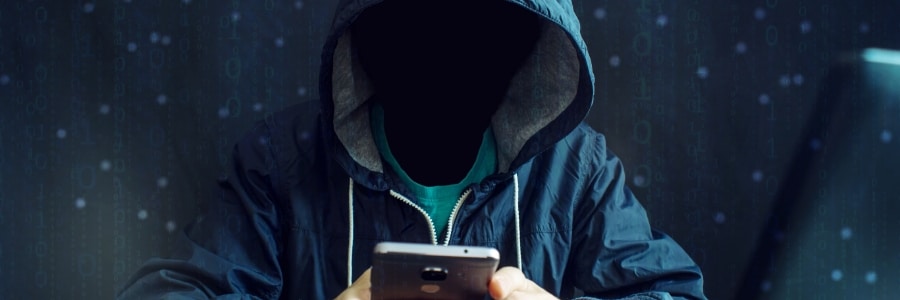Blog

Signs your VoIP system has been compromised
Voice over Internet Protocol (VoIP) systems have many advantages over traditional telephone systems, but they also come with a unique set of risks. Because VoIP relies on the internet, it’s susceptible to hacking attempts, just like any other online system. Hackers can use a range of techniques to infiltrate your VoIP system, such as stealing login credentials or using malware to gain access. Knowing the signs of a hacked VoIP system is critical for preventing any damage to your business. In this article, we’ll discuss how to tell if your VoIP system has been hacked and what you can do to protect yourself.
1. Redirected internet searches
You and your employees may carry out phone calls while also conducting internet searches related to the conversations. If your search results are being redirected to other — often potentially malicious — sites, it’s likely that your VoIP system has been hacked. Unfamiliar browser extensions and toolbars are also signs that hackers may have already installed unwanted software or malware on your computer.
2. Random antivirus pop-ups
Random virus alerts that pressure you into running a scan or removing the virus while your VoIP system is on may be another sign that your system has been infiltrated. If you or your employees encounter these fake antivirus messages, notify your IT technician or managed IT services provider (MSP) so they can identify the source of the pop-ups and then scan your system for malware. It’s crucial that everyone in your organization is trained to recognize these potentially malicious messages and, more importantly, not click on them.
3. Webcams and microphones turning on automatically
Another suspicious computer activity that can indicate a hacked VoIP system is webcams and/or microphones turning on automatically. By accessing these devices, hackers can illegally listen in on calls and obtain sensitive or confidential business information. So if you or your employees notice that your webcams or microphones are acting strangely, notify your IT technician or MSP immediately so they can check for other signs of hacking.
4. Sudden increase in VoIP bills
One benefit of VoIP over landline is a more affordable monthly bill. If your phone bill suddenly skyrockets but you haven’t added any new phone lines or numbers and there’s no change in the calls you’ve been making, then your system may already be hacked. Cybercriminals can use VoIP phone systems to make numerous unauthorized calls to premium numbers, which will certainly rack up expensive bills. Therefore, if you notice a sudden spike in your monthly bill, you should alert your VoIP provider, as it’s likely that someone has hacked your system and is making calls without your knowledge.
5. Irregular call history
Your VoIP system may also be under attack if your call history reveals phone numbers or calls you or your employees didn’t make. If your business doesn’t deal with international clients or partners, calls made to or from foreign numbers are an especially big red flag. It helps to regularly review your call logs for unusual or suspicious activities. Take note of calls made during off-hours or on weekends or holidays. Advise employees against making non-work-related calls from their business numbers to make it easier to catch these irregularities. The most effective way to keep your VoIP system safe from hackers is to invest in reliable security solutions and educate everyone in your company on cybersecurity best practices. However, partnering with the right VoIP provider is just as important as the precautions you take.
Give us a call today!
Beringer Technology group can help your team navigate the ever-changing security threats on the internet. Reach out to Beringer Technology Group today. We can help evaluate your current cybersecurity posture with our Cyber Security Risk Assessment Solution, and implement the right security solutions for your organization.
Beringer Technology Group, a leading Microsoft Gold Certified Partner specializing in Microsoft Dynamics 365 and CRM for Distribution also provides expert Managed IT Services, Backup and Disaster Recovery, Cloud Based Computing, Email Security Implementation and Training, Unified Communication Solutions, and Cybersecurity Risk Assessment.




